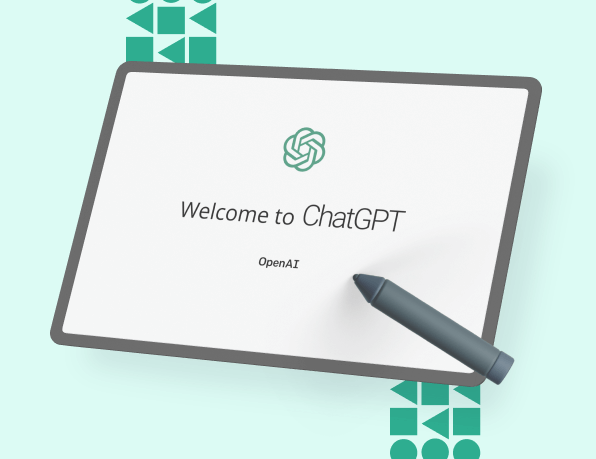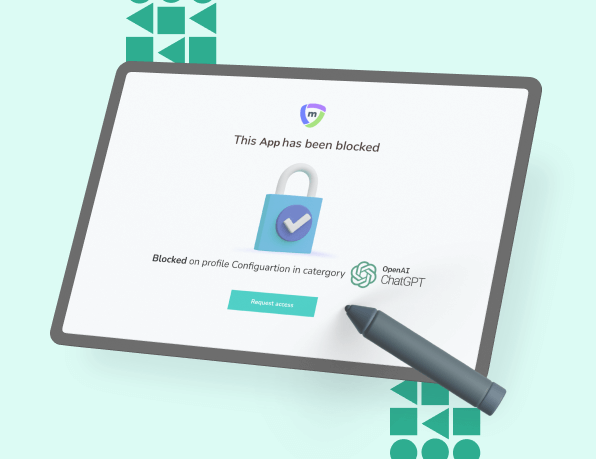The Revelation of ChatGPT
The revelation that has been chatGPT has rocked the online world.
With the full implications of such a sophisticated piece of technology on the modern classroom quite possibly not fully appreciated yet, a number of approaches have been suggested on how best to deal with the tool.
Some educational leaders propose blocking or limiting access to the application in order to prevent students from utilising the application to do their school work.
On the other side of the spectrum, educators are advocating for its use and learning how to intelligently use the application to assist with research, brainstorming and exploring ideas and concepts further than previously used methods.

Changing How We Access Information
Another perspective is that chatGPT and Large Language Models are simply the next steps in how we access information.
In the not-so-distant past, the index of an encyclopaedia was a doorway to any questions we might have. A library with an entire set offered an almost endless possibility of answers.
With the arrival of the digital era, and search engines such as Google, the encyclopaedia fell away and our quests for answers became dependent on the search bar rather than the index of a book. The search algorithm and this new means of accessing information that was returned to us relative to our query made our pursuits of information faster than before.
The arrival of chatGPT can be said to be another step up the ladder of sophistication in how we access information in the digital era.
However you and your school view chatGPT, there may be instances where removing students’ access to the website and similar LLMs may simply suit your learning environment best.
You can find out below how to block access to chatGPT throughout your institution and limit students’ access to the application according to the stipulated means.
How to Block ChatGPT with Mobile Guardian
Below is a detailed outline of how to block chatGPT from your school, with various ways that you can do so with Mobile Guardian.

How to block the chatGPT website via Safer Content:
- Open your Mobile Guardian Dashboard
- Select Profiles in the left menu
- Select either your Baseline Profile or the applicable Conditional Profile
- Select Safe Content
- Select Allowed List & Blocklist
- Scroll down to the URL’s section
- Type in “https://chat.openai.com/chat” into the Blocklist bar
- Select Add
- Select the General tab at the top of your screen
- Enter “https://chat.openai.com/chat” into the URL Tester bar
- Confirm that the URL is successfully blocked
- Chat GPT website will now be blocked from student devices
Devices operating on this Profile will now be restricted from accessing the website thanks to Mobile Guardian’s Safer solution, a cloud-based, comprehensive web filter.
How to block chatGPT applications on Android devices:
- Open your Mobile Guardian Dashboard
- Select Profiles in the left menu
- Select either your Baseline Profile or the relevant Conditional Profile
- Select Applications
- Select Blocklist tab under the Allowed/Blocklist heading
- Select Android from the Application OS Type dropdown menu
- Enter chatGPT into the search bar
- Mobile Guardian will search for the applications on the Play Store
- Select a chatGPT application from the search results
- Select Add App
- Repeat your search and adding of apps until all variations are included
- Tip: search for variations of spelling, for instance “chat GPT” and “openAI”
All the selected instances of chatGPT will now be blocked from student Android devices.
Students will no longer be able to install chatGPT onto their devices when the Profile you’ve edited is active.
It's important to ensure your Profiles are kept up to date and your Baseline and Conditional Profiles are frequently reviewed. Find out more about Mobile Guardian's Profile management here.
How to block chatGPT on iOS devices
- Open your Mobile Guardian Dashboard
- Select Profiles in the left menu
- Select either your Baseline Profile or the relevant Conditional Profile
- Select Applications
- Select Blocklist tab under the Allowed/Blocklist heading
- Select iOS from the Application OS Type dropdown menu
- Enter chatGPT into the search bar
- Mobile Guardian will search for the applications on the App Store
- Select a chatGPT application from the search results
- Select Add App
- Repeat your search and adding of apps until all variations are included
- Tip: search for variations of spelling, for instance “chat GPT” and “openAI”
All the selected instances of chatGPT will now be blocked from student iOS devices and iPads.
How to block chatGPT on ChromeOS devices
- Open your Mobile Guardian Dashboard
- Select Profiles in the left menu
- Select either your Baseline Profile or the relevant Conditional Profile
- Select Applications
- Select Blocklist tab under the Allowed/Blocklist heading
- Select ChromeOS from the Application OS Type dropdown menu
- Enter chatGPT into the search bar
- Mobile Guardian will search for the applications on the Play Store
- Select a chatGPT application from the search results
- Select Add App
- Repeat your search and adding of apps until all variations are included
- Tip: search for variations of spelling, for instance “chat GPT” and “openAI”
All the selected instances of chatGPT will now be blocked from student ChromeOS devices.
How to block any URL containing chatGPT queries:
Profiles are the Powerhouse of Mobile Guardian.
Depending on your organisation's approach to chatGPt, you may want to set a blanket blocking of the website and application, or only block the application for particular scenarios.
This could be during the school day, but then in the afternoon students are able to access it.
There are two ways to set up these restrictions with Mobile Guardian, either through the Baseline Profile to set school or organisation-wide restrictions or through the Conditional Profile, which sets restrictions based on unique conditions to allow for nuanced and unique learning environments for your students.
How to Blanket Block chatGPT for your entire institution
- Open your Mobile Guardian Dashboard
- Click on Profiles
- Adjust your Baseline Profile
- Set the particular times, devices, and locations that are to block chatGPT
- Click save.
Adjusting your Baseline Profile to block chatGPT will block the application for all devices in your school.
To block chatGPT for only some devices or for specific grades or even specific lessons, do so through your Conditional Profiles rather.
How to Block chatGPT for Specific Grades or Classes
- Open your Mobile Guardian Dashboard
- Click on Profiles
- Adjust the specific Conditional Profile
- Set the particular times, devices and locations when chatGPT ought to be blocked
- Click save
- Devices assigned to this Conditional Profile will now be blocked accordingly.
By assigning specific sets of devices or grades to the specific Conditional Profile, your institution can limit access to chatGPT according to the time and location activation of your Conditional Profiles. Thereafter devices will only be able to access the applications as stipulated.
Consider Updating your Acceptable Usage Policy (AUP)
Whether you decide to block chatGPT or not, we recommend updating your Acceptable Usage Policy and discussing what your expectations from students are in how they conduct themselves online.
An important aspect of all AUPs is that students buy into the policy. Without their understanding and appreciation of what is deemed acceptable use of their device, there are further complications ahead.
Turnitin, an internet-based plagiarism tool, published a recent report on chatGPT. An academic integrity expert highlights in the report the need to ensure that ‘value-based conversations’ are happening with students.
Such conversations focus on the importance of engaging with school work and striving to find not only the answers to the quiz questions but develop analytical skills while forming a coherent and complete understanding of the topic at hand.
Consider Empowering Your Students through Digital Citizenship
A concept that further drives home the importance of an Acceptable Usage Policy and the perspective of ‘value-based conversations’ mentioned above, is that of Digital Citizenship.
A brief definition of digital citizenship, as covered in our blog “Empower your Students through Digital Citizenship”, is the ability of students to engage positively, critically and competently in the digital environment.
With the arrival of chatGPT, it's easy to see how such behaviour may be impacted, and the need to remain engaged in a positive, critical and competent manner with the learning and discovering is of importance.
That said, it can greatly help schools to block access to chatGPT when required and to ensure that students are fostering their curiosity and drive for learning.
Accessing Mobile Guardian
To gain access to Mobile Guardian for your school, contact us here to request a demonstration of how Mobile Guardian can impact your learning environments.
Alternatively, if you’d like to experience Mobile Guardian for yourself, request a free trial here and we’ll be in touch to help guide you through your onboarding process.
Onwards,
Nicholas Norman
Team Mobile Guardian






